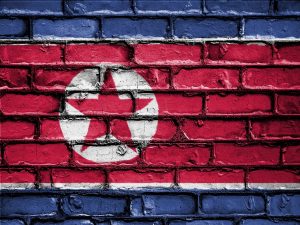Kim Yo Jong, sister of North Korean leader Kim Jong Un, referred to South Korean Foreign Minister Kang Kyung-wha’s remarks about how the North has been grappling with the coronavirus as presumptuous in a statement reported by the Korean Central News Agency (KCNA) on Wednesday.
Kim said that Kang seems to want to “bring a chill to the frozen relationship between the two countries based on absurd remarks without any calculations.” She added that Kang’s remarks will be remembered, indirectly warning about potential discord.
As many experts question Pyongyang’s insistence that there have been no COVID-19 cases in the country, Kang said the coronavirus outbreak has made the North more like itself. Speaking at the Manama Dialogue security conference in Bahrain on December 5, the South Korean foreign minister explained that the North’s COVID-19 decisions are made in a top-down manner with insufficient debate over quarantine measures.
After Kim’s response was reported by KCNA, the South Korean Foreign Ministry made a short statement of its own, saying Kang’s remarks were meant to highlight the need for international cooperation with the North on COVID-19.
North Korea has been taking aggressive measures to prevent the spread of COVID-19 since the coronavirus first threatened the Korean Peninsula in January. It shut down the border with China, where the virus first emerged, and limited movement between North Korean cities. Those measures caused critical economic damage, as China is one of the few countries where North Korea can earn foreign currency.
The U.S. Department of Agriculture previously projected that the North’s economy could still be feeling the effects from the COVID-19 outbreak in 2030, even though Pyongyang might have received subsistence support from Beijing this year.
According to a report by the World Health Organization (WHO) in November, the North has no confirmed COVID-19 cases and had tested 10,462 people as of October 22. The number of suspected cases was 5,368, eight of which were foreigners.
Edwin Salvador, the WHO representative to North Korea, mentioned in late September that 3,374 North Koreans had tested negative for the virus and confirmed there had not been a single positive test for COVID-19 as of September 17 in an interview with VOA.
However, despite the WHO confirmation, many have questioned the accuracy of those reports. It seems impossible to record zero cases as North Korea is next to China and all the surrounding countries have experienced coronavirus outbreaks. And given the fact that it is impossible to check directly the exact status of the COVID-19 outbreak in the North, suspicions have emerged whenever the North says there are no confirmed coronavirus case in the country.
“Kim Yo Jong’s criticisms of Foreign Minister Kang Kyung-wha’s remarks may seem gratuitous, but it is not unusual for North Korea to go on offense when in a defensive position,” said Leif-Eric Easley, a professor of Ewha University in Seoul, in an interview with The Diplomat.
Some experts also say that the main reason for the North’s closed and drastic measures amid the pandemic, while seeking neither cooperation nor support from the international community, is related to its monarchical system. The goal is to keep up the authoritarian power of Kim Jong Un and to show the people that their leader can save their lives from the unprecedented pandemic. According to this view, the North’s way of grappling with the virus is evidence that it is more important for Kim’s family to keep their regime than to revive the economy.
“Pyongyang’s draconian anti-epidemic measures suggest the COVID-19 situation is worse than it admits and that the Kim regime is more concerned with the politics of the virus than the economic suffering of its people,” Easley said.
Elsewhere, the United Kingdom has started its vaccination campaign. In the next month or two, more and more countries are expected to approve and buy vaccines to inoculate their populations and end the battle with coronavirus. The North, however, is unlikely to open its borders to buy vaccines from abroad. All indications are that the country is going to keep self-isolating from the international community.

































